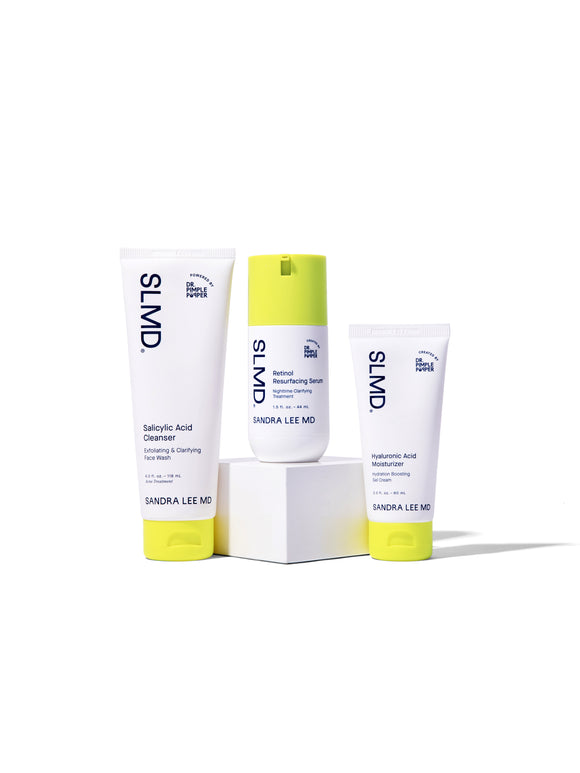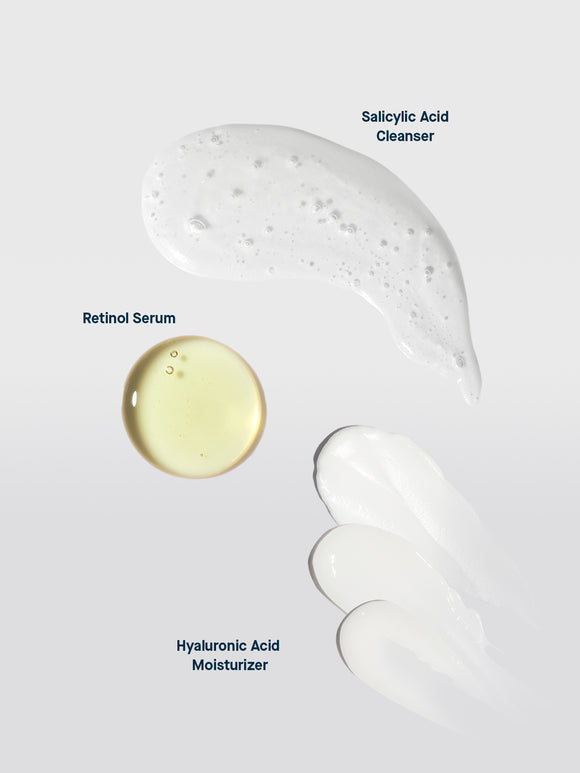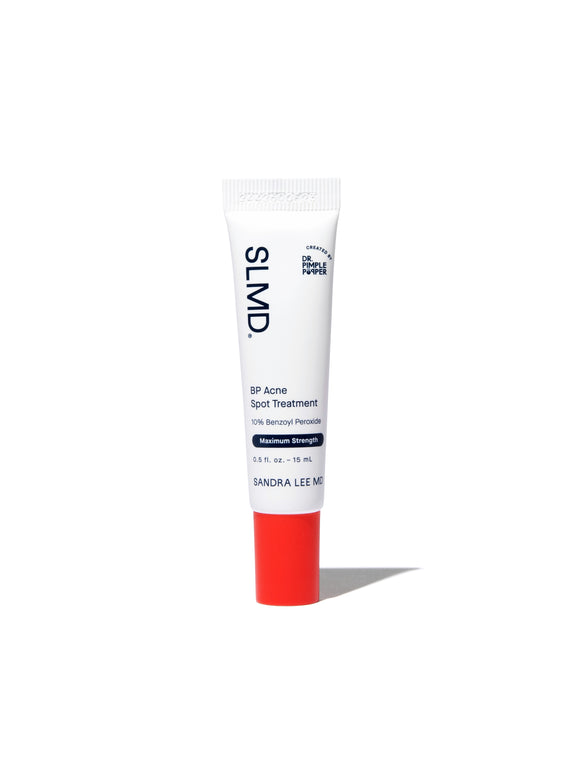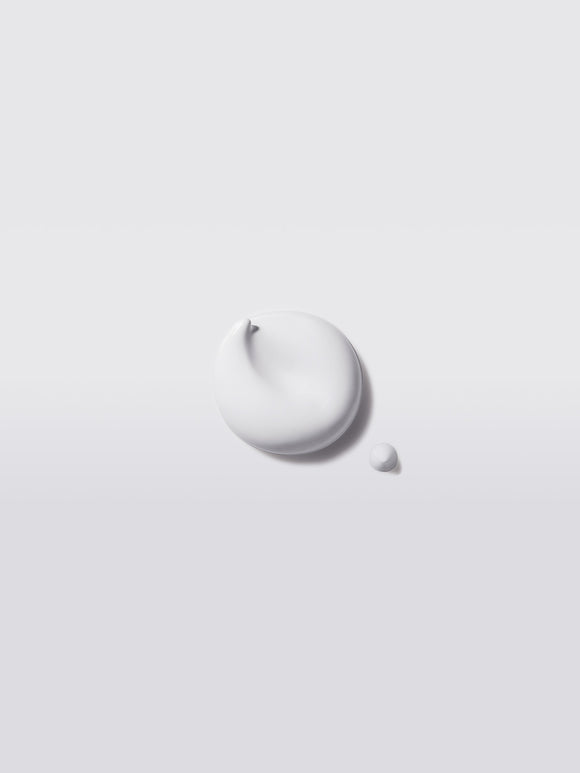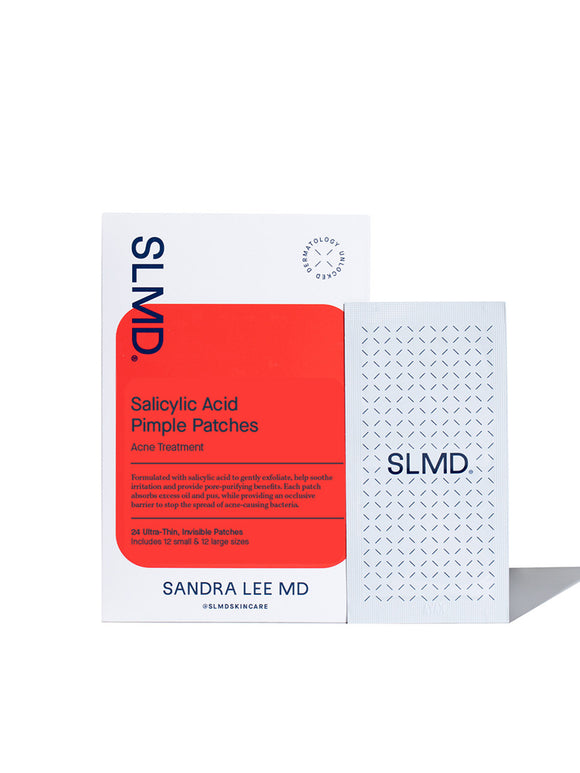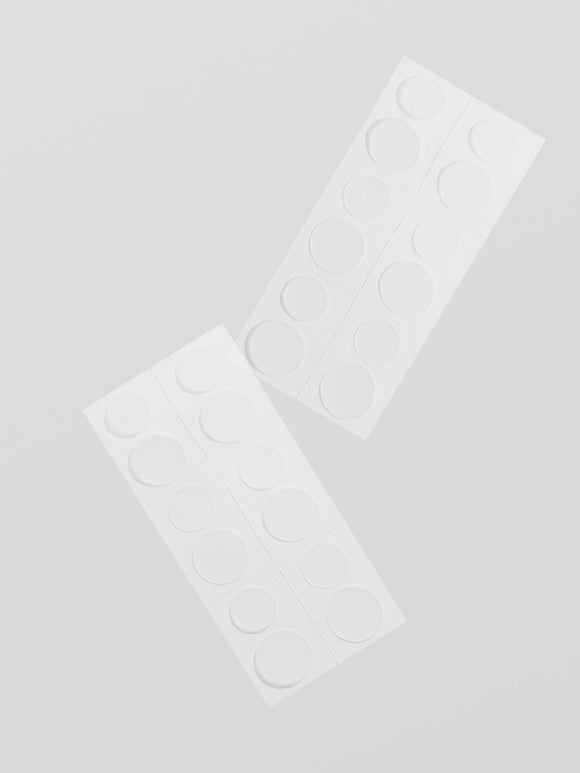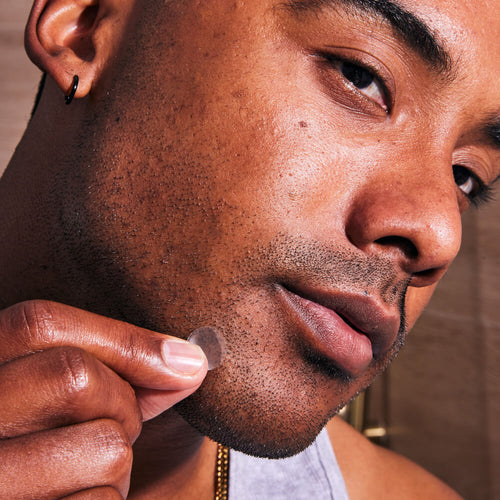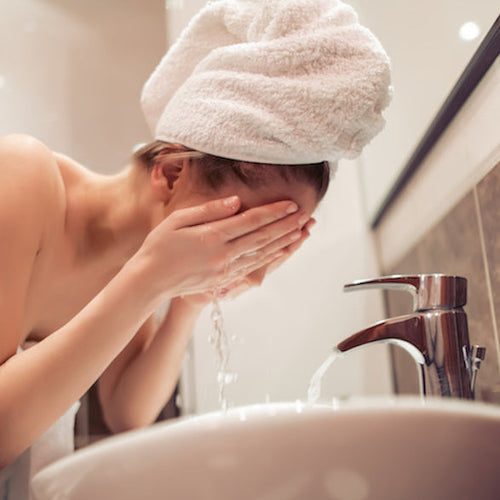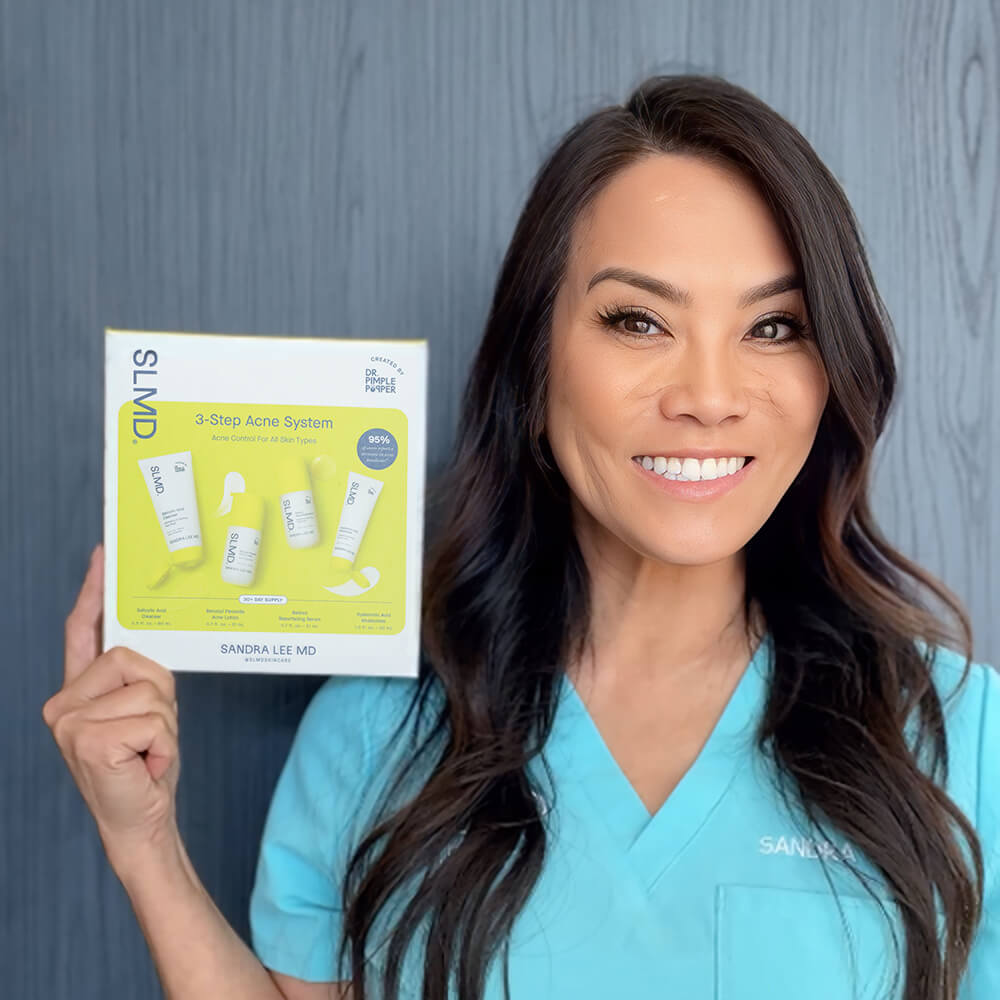
Dr. Pimple Popper's Tips for Treating Adult & Hormonal Acne
Still breaking out? You’re not alone — here's what's going on, and what to do about it.
Published:
5 minute read
Dealing with adult and hormonal acne can be frustrating — especially if you’ve tried to manage it, without much success. To shed light on this increasingly common condition, we turned to our founder and acne expert, Sandra Lee, MD (aka Dr. Pimple Popper). Here, she offers advice on the best way to treat adult and hormonal acne.
Article Quick Links
Investigate the cause of your adult acne
DPP: Although there’s really no difference between teen acne and adult acne — pimples are pretty much pimples — the causes aren’t exactly the same. Probably the two biggest factors for adult acne are hormonal changes, which we can’t do much about, and our modern lifestyle, which we do have some control over.
If you get acne during your monthly cycle, that’s due to hormonal changes. That can crop up again with age — during perimenopause and menopause — when estrogen levels start decreasing.
If you’re stressed, it can elevate cortisol levels, which increases sebum and clogged pores. Studies also show that eating highly processed, sugary foods, which causes higher insulin levels, is linked to acne, as are certain prescription medications.
The bottom line here is that if your adult acne is hormonal, you can anticipate it, and treat it ahead of time with the right products. And if your lifestyle is contributing to your acne, it’s empowering to know that you can make changes, like getting more sleep and making healthier choices.
Dr. Pimple Popper's Adult & Hormonal Acne Solutions
Incorporate acne-fighting ingredients into your routine
DPP: I want people to know that adult acne doesn’t have to control your life: you can manage it. I see a lot of patients who are frustrated that the acne they experienced during their teens has come back, and I also see adults with later-onset acne. The good news is that we have a lot of tools in our toolbox to manage these breakouts.
There are a handful of really powerful acne-fighting ingredients that are available over the counter. I use them both in my practice and in my skincare line — they’re the cornerstone of my SLMD Acne System and After-Acne System.
Click here to check out our SLMD systems for acne and beyond.
Salicylic acid
DPP: I recommend salicylic acid in a cleanser, because it penetrates into pores to remove trapped oil and dead skin — which are the building blocks of acne. If your pores are clear, you don’t get pimples.
Use a gentle, exfoliating facewash like my SLMD Salicylic Acid Cleanser to treat and prevent active acne. Sometimes I leave it on my skin for a minute or two before rinsing it off, to really penetrate. If you tend to get blackheads and whiteheads in the same spots regularly, you’ll want to also use a max-strength spot treatment on the area, like my Salicylic Acid Spot Treatment.
Benzoyl peroxide
DPP: If you have inflammatory acne, which is often the case with those painful pimples around your chin and jawline from hormonal fluctuations, you’ll want to incorporate benzoyl peroxide. This ingredient kills the bacteria that invades clogged pores, so it also calms down the immune response that’s responsible for those red, painful pimples.
I recommend a product that sits on the skin, like my SLMD Benzoyl Peroxide Acne Lotion, that you can apply daily for chronic adult acne, and maybe the week or so before your period, if your acne is tied to your menstrual cycle.
For individual pimples that pop up from time to time, you can try a higher concentration, like my BP Acne Spot Treatment, and spot treat a couple of times daily.
Sulfur
DPP: Sulfur is a natural mineral that inhibits bacterial growth, that you can use instead of benzoyl peroxide, if you’re sensitive to benzoyl peroxide, or if you have sensitive skin. Again, we want this to remain on the skin, so choose a lotion or even a mask that sits on the skin for awhile.
Retinol
DPP: People tend to associate retinol with preventing signs of aging, but it was originally studied for its acne-fighting abilities. Retinoids regulate skin cell turnover, which can help keep dead skin cells from building up inside the pores. It also has the effect of speeding up the healing process, which not only helps acne but promotes a more even-looking skin tone post-acne. It’s one of those ingredients that I recommend to just about everyone, acne or not.
Retinol is best applied at night, because it reacts with sunlight, and it needs time to sit on the skin. My SLMD Retinol Resurfacing Serum is lightweight, and it also contains hyaluronic acid, which helps soothe the skin to avoid irritation.
Moisturizer and sunscreen
DPP: A lot of people skip moisturizer and SPF if they have acne, because a lot of these products can make acne worse. But since a lot of acne treatments can be very drying, it’s absolutely essential to protect your skin barrier and keep your skin balanced. Plus, UV rays damage your skin, making it more prone to acne and irritation. Just make sure your products are specially formulated for acne-prone or oily skin, like my SLMD Facial Moisturizer and Dual Defender SPF 30.
Know when it’s time to see a dermatologist
DPP: I get a lot of questions about the best way to handle adult and hormonal acne — whether you should see a dermatologist right away, or stick to the skincare aisle. My best advice is to listen to your skin. If you’re seeing deep, large cysts and nodules, and you’re worried about scarring, talk to your doctor. But if you’re getting a cluster of blackheads and whiteheads, or more superficial, red papules and pustules, start with some over the counter remedies.
Sometimes, hormonal acne is caused by an underlying health condition, like polycystic ovarian syndrome (PCOS), which needs to be investigated. If it’s tied to more typical hormonal cycles, there are some medications, like oral contraceptives and anti-androgen drugs, that can help.
For typical adult acne vulgaris, we can also try prescription topicals like tretinoin, as well as oral medications, including antibiotics or isotretinoin.
When it comes to treating acne, it can be hard to be patient — but even a prescription product takes time to work. If you’ve been consistently following a high-quality skincare regimen for a few months, and you’re not seeing results, it’s probably time to book an appointment with your dermatologist.

Dr. Lee's Last Word
If you’re experiencing adult acne, don’t get discouraged! It can be managed. Incorporate acne-fighting ingredients like salicylic acid and retinol into your skincare routine, and take care of yourself. If you’re concerned about long-term impacts, like scarring or harm to your self-esteem, talk to your doctor.





